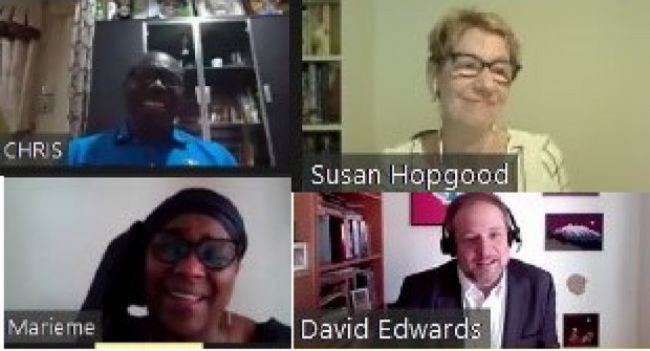Africa: Governments must act urgently to protect educators and build stronger education systems
Education International’s member organisations in the African region have faced many challenges due to the COVID-19 pandemic, according to the EIARC. The crisis has led to restrictions on union activities due to lockdowns, school closures, worker layoffs, sickness, and death.
Challenges due to the pandemic, terrorism, and climate change
Susan Hopgood, Education International’s President, noted that Africa has been seriously hit by lengthy school closures because of COVID-19, an upsurge in terrorist attacks, and climate change-related disasters, such as flooding and long periods of drought.
“It is time for us to put more pressure on African and all governments to address the long-standing problems affecting the education sector,” she said. “Educators need continuous professional development, decent salaries and working conditions, trust and support. We can work together to build resilience amongst the members we serve and to call for more responsive and stronger education systems.”
Opportunity for proactive support
Christian Addai-Poku, Chairperson of EIARC, said that, “in spite of these challenges, the new decade offers the opportunity to accelerate the achievement of continental education goals and SDG4 so that the children of Africa gain inclusive and equitable quality education and lifelong learning opportunities for all by 2030”.
He reiterated the need to reduce the impact of the COVID-19 pandemic on education in the region. And he urged governments to consult teachers and education support personnel (ESP) through their representative organisations to ensure that teachers and students were well equipped with personal protective equipment (PPE), face masks, water, soap, and hand sanitiser to keep them safe.
Teachers are indispensable
The UN Special Rapporteur on the Right to Education, Dr Koumba Boly Barry, addressing the theme of “Guaranteeing the Right to Education in Africa during and beyond the COVID-19 crisis”, emphasised that the role of the teacher is indispensable and that teachers need to be listened to and their capacity built to guarantee quality education.
She also called for multidimensional dialogue involving major sectors like agriculture, finance, and health which have an effect on the students. And she highlighted that homes and communities need to be organised to support learning and teachers.
Old challenges, new context
Education International’s General Secretary, David Edwards, traced the global education trends of cuts in education budgets, a decline in development assistance, increasing commercialisation and privatisation of education, stagnating progress for the education of girls, school closures and lockdowns, and looming layoffs of educators in Early Childhood Education (ECE) and higher education institutions.
These trends, he admitted, are not new but placed in a new context. To reverse them, everyone must be immunised against COVID -19, face-to-face education must be promoted, privatisers of education must be halted, and democracy must be defended, he said.
“Education International has never been more relevant, more needed, more present, more vocal and if anyone can shift the educational trend lines, chart a different course, build power, educate all young people about their rights, obligations and how to organise and change, it is us.”
Resolutions to protect quality education and teachers
The Committee adopted three key resolutions:
- On the need to ensure quality education for all during and beyond crises. The EIARC condemned the fact that the quality of education is likely to suffer considering the negative impact of the COVID-19 pandemic. It is adamant that insecurity on the continent and the impact of climate change are a threat to the achievement of quality education, and governments need to act now to protect quality education.
- On the situation in Ethiopia. The conflict in Northern Ethiopia, the fight between the Tigray People’s Liberation Front and the Federal Government is having devastating effects on teachers, ESP, students, and their families. It is also having a negative impact on the whole education system in the region as schools remain closed due to the conflict. The EIARC reaffirmed its solidarity with the Ethiopian Teachers’ Association and called on the Ethiopian Government and the international community to take urgent action to protect educators and students.
- On the abduction of students, teachers, and ESP in the Niger State of Nigeria. The EIARC expressed concern that schools in many countries in Africa, especially Nigeria, are not the safe havens they should be. Teachers, ESP, and students are at risk simply by coming to school, because armed forces consider them, schools, and tertiary education institutions as legitimate targets. The committee condemned the frequent abductions in Nigerian schools that threaten to undermine the education of millions of children. It reaffirmed its solidarity with the Nigeria Union of Teachers and called on the Government of Nigeria to ensure that schools are safe and secure all over the country.

[Fri, 05 Mar 2021 10:25:00 +0000] | DIGG THIS
Education International · No. 3 Torshie Close, · Mempeasem · East Legon Extension · Accra · Ghana
Phone: +233.302.50.12.00 · Fax: +233.302.50.66.81 · Email: eirafoffice@ei-ie.org
Website Development and Design by Cyblance
